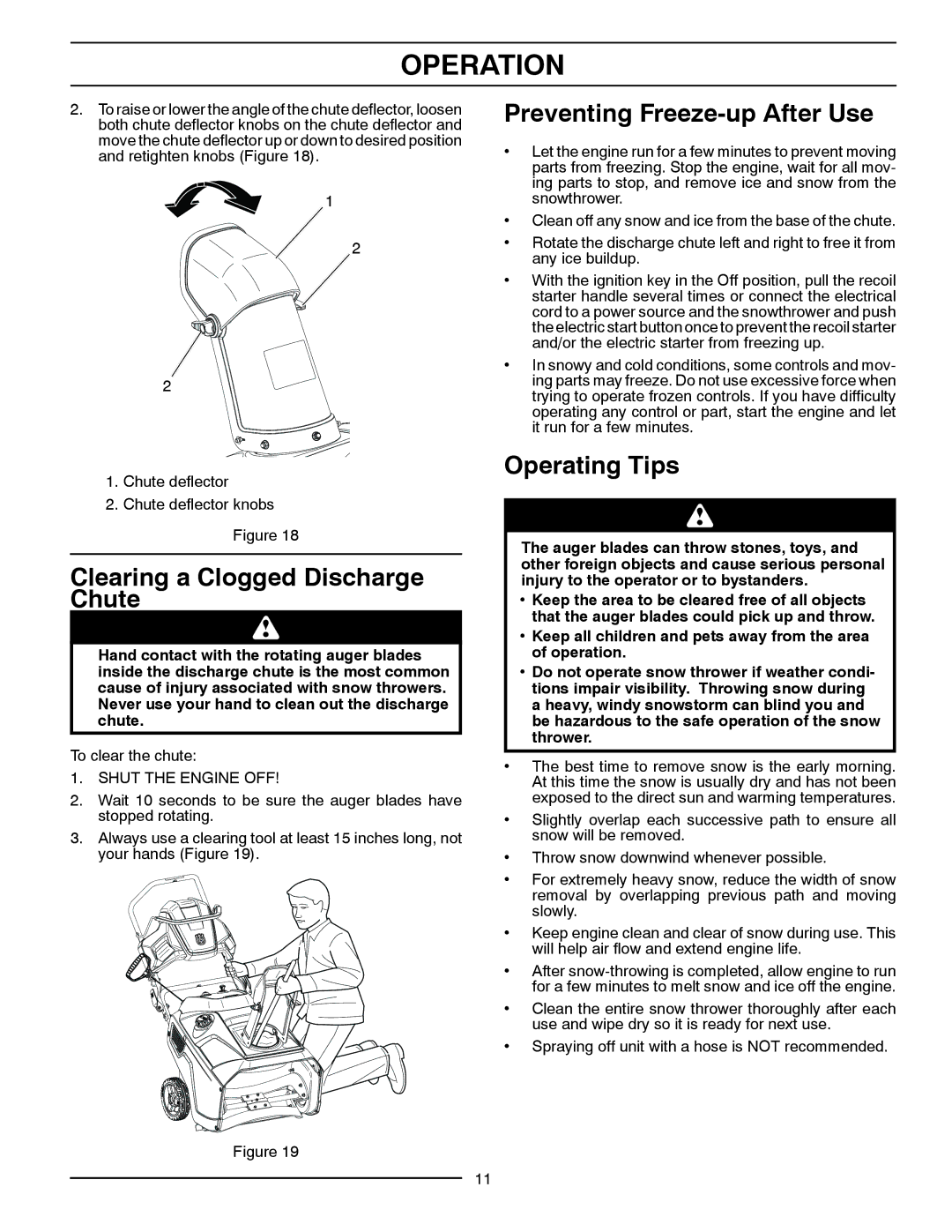
OPERATION
2.To raise or lower the angle of the chute deflector, loosen both chute deflector knobs on the chute deflector and move the chute deflector up or down to desired position and retighten knobs (Figure 18).
1
2
2
1.Chute deflector
2.Chute deflector knobs
Figure 18
Clearing a Clogged Discharge Chute
Hand contact with the rotating auger blades inside the discharge chute is the most common cause of injury associated with snow throwers. Never use your hand to clean out the discharge chute.
To clear the chute:
1.SHUT THE ENGINE OFF!
2.Wait 10 seconds to be sure the auger blades have stopped rotating.
3.Always use a clearing tool at least 15 inches long, not your hands (Figure 19).
Figure 19
Preventing Freeze-up After Use
•Let the engine run for a few minutes to prevent moving parts from freezing. Stop the engine, wait for all mov- ing parts to stop, and remove ice and snow from the snowthrower.
•Clean off any snow and ice from the base of the chute.
•Rotate the discharge chute left and right to free it from any ice buildup.
•With the ignition key in the Off position, pull the recoil starter handle several times or connect the electrical cord to a power source and the snowthrower and push the electric start button once to prevent the recoil starter and/or the electric starter from freezing up.
•In snowy and cold conditions, some controls and mov- ing parts may freeze. Do not use excessive force when trying to operate frozen controls. If you have difficulty operating any control or part, start the engine and let it run for a few minutes.
Operating Tips
The auger blades can throw stones, toys, and other foreign objects and cause serious personal injury to the operator or to bystanders.
•Keep the area to be cleared free of all objects that the auger blades could pick up and throw.
•Keep all children and pets away from the area of operation.
•Do not operate snow thrower if weather condi- tions impair visibility. Throwing snow during a heavy, windy snowstorm can blind you and be hazardous to the safe operation of the snow thrower.
•The best time to remove snow is the early morning. At this time the snow is usually dry and has not been exposed to the direct sun and warming temperatures.
•Slightly overlap each successive path to ensure all snow will be removed.
•Throw snow downwind whenever possible.
•For extremely heavy snow, reduce the width of snow removal by overlapping previous path and moving slowly.
•Keep engine clean and clear of snow during use. This will help air flow and extend engine life.
•After
•Clean the entire snow thrower thoroughly after each use and wipe dry so it is ready for next use.
•Spraying off unit with a hose is NOT recommended.
11
